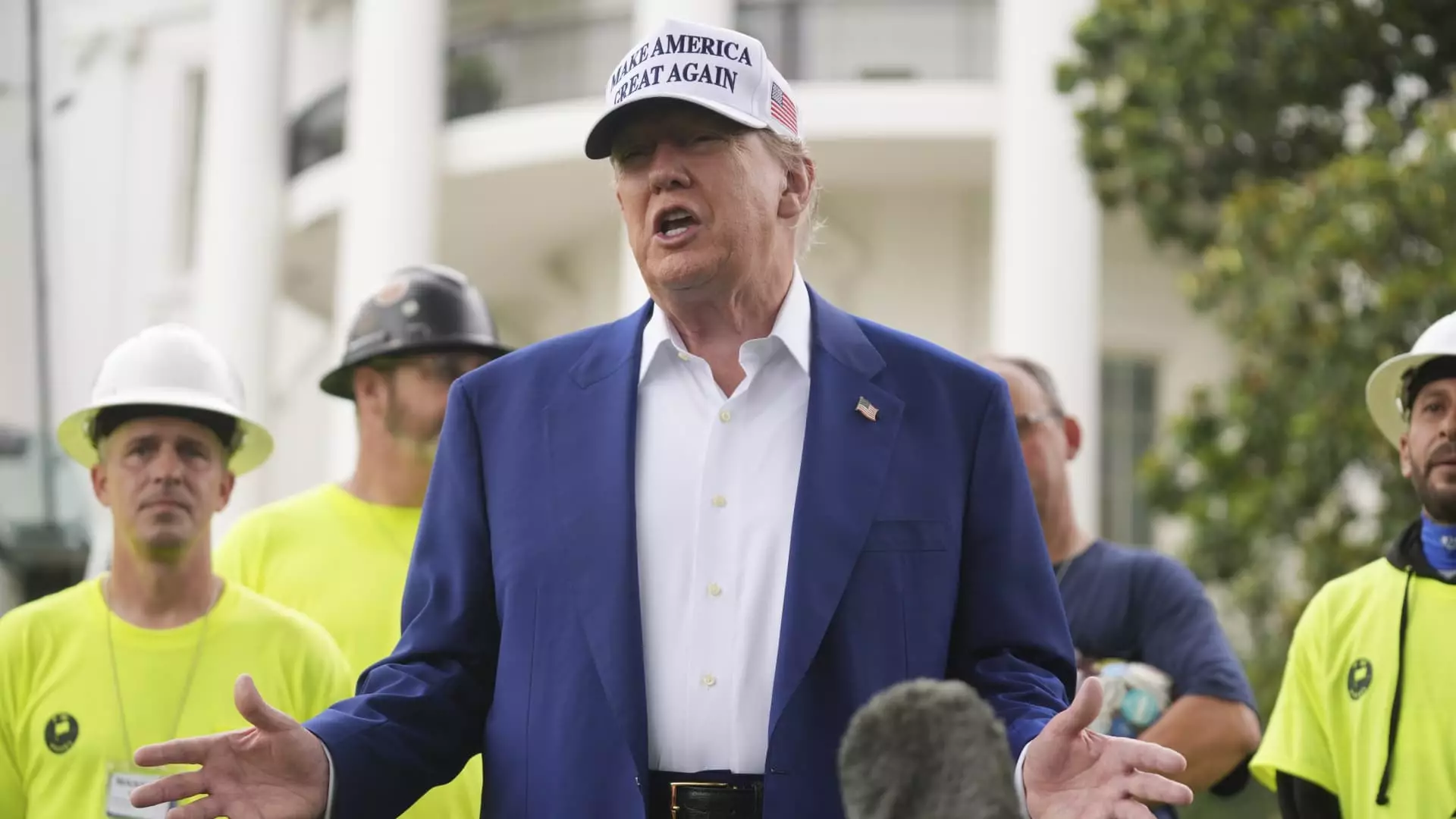In a charged political atmosphere, few spectacles are as alarming as a sitting President publicly berating the head of a cornerstone financial institution. Donald Trump’s recent tirade against Federal Reserve Chair Jerome Powell exemplifies a reckless disregard for the economic stability of the nation. His impromptu remarks, branding Powell as “stupid” and attributing dire misconceptions to his hold on monetary policy, are not merely personal attacks—they resonate deeply within the broader landscape of American fiscal governance. By disparaging the Fed’s efforts, Trump dangerously undermines the crucial independence of this institution in maintaining a balanced economy.
Populism Meets a Complex Economy
Trump’s simplicity in interpreting the Fed’s role is disconcerting. His assertion that interest rates should be slashed by at least 2 percentage points reflects a naive understanding of economic dynamics. While it is easy for any politician to advocate for lower rates, such myopic thinking ignores the multifaceted nature of modern economics. The Federal Reserve does not simply react to political pressure; rather, it acts based on complex economic indicators that demand nuanced deliberation. Polluting this discourse with personal attacks sows discord and could have long-lasting repercussions on the trust placed in the Fed’s decision-making process.
Thanks to the trillions of dollars injected into the economy over the years, the U.S. has achieved a fragile recovery from recent recessions. Trump’s narrative that European countries, with their multiple rate cuts, are flourishing while the U.S. remains stagnant is not only misleading but shows a lack of understanding of different economic contexts. Each economy has its unique challenges and attributes. Eurozone economies face their own set of structural hurdles that do not align with American dynamics, complicating comparisons and suggesting that a blanket prescription of “cut rates” is anything but judicious.
Inflation: The Unseen Beast
Trump’s assurance that inflationary pressures are negligible is welcomed with skepticism. While current indicators may appear stable, the long-term impact of his policies—including tariffs and trade wars—remain ambiguous. Inflation is not merely a statistic but a reflection of consumer relationships around purchasing power and expectations. By downplaying these risks, Trump not only invites potential economic peril but signifies a deeper ignorance of fiscal prudence. The Federal Reserve has a duty to navigate these waters carefully, avoiding reckless adjustments that could unleash unforeseen consequences.
Moreover, Trump’s fixation on financial savings, suggesting that lower rates could save the U.S. “hundreds of billions” in financing costs, reveals a startling romanticism toward fiscal simplification. Saving through lower interest may sound appealing, but it discounts the multi-layered ramifications of such reductions. Sustainable growth requires more than a mere focus on immediate cost savings; it involves strategic investment, which unfortunately seems to be lost on Trump in his myopic critique of the Fed.
The Threat to Independent Governance
Another alarming facet of Trump’s rhetoric is its potential chilling effect on the independence of the Federal Reserve. Statements implying that Powell’s reluctance to bend to political whims might stem from a personal vendetta against Trump reflect a disturbing trend: conflating policy with personal grievances. The President’s musings about appointing himself as Fed Chair—vowing he would do “a much better job”—serves to weaponize economic institutions in a political context, weaponizing rather than preserving the integrity of such significant positions.
In an era where political affiliations often outweigh empirical evidence, compromising the fundamental independence of the Fed could have devastating consequences. Powell, alongside his team, has pledged to navigate economic uncertainties unaffected by partisan pressure. However, the incessant public attacks from Trump threaten to erode this critical pillar of governance in the United States.
The Journey Ahead
As we look to the coming months, with interest rate adjustments looming and economic uncertainty looming larger than ever, one can only hope for a productive dialogue governed by wisdom and regard for foundational economic principles. Trump’s antagonism may serve his immediate political narrative, but it sacrifices the long-term stability of the U.S. economy on the altar of superficial populism. If we wish for sustainable economic progress, the focus must shift from impulsive rhetoric to constructive discourse, acknowledging that progress takes time and careful navigation through complex fiscal realities.

